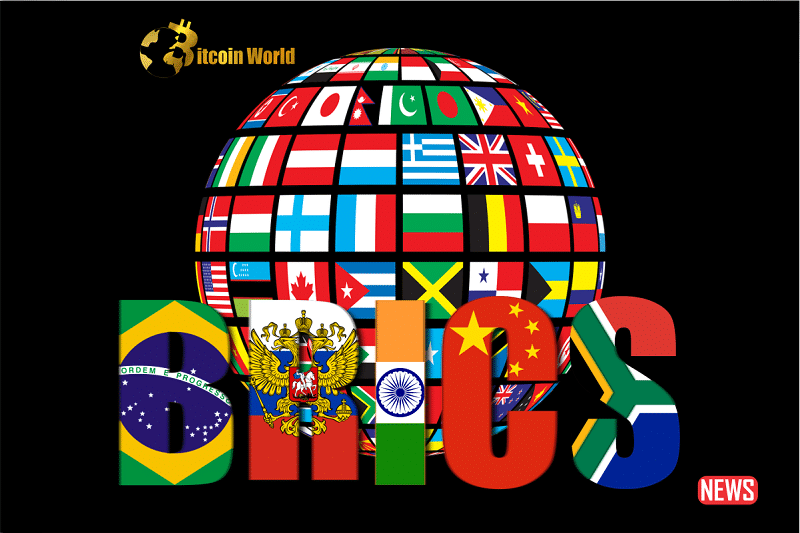For decades, the United States dollar has reigned supreme as the world’s reserve currency. But could that dominance be facing a significant challenge? Whispers of change have grown louder, and now, a coalition of 24 nations is reportedly forming, aiming to reshape the global financial landscape. This isn’t just idle talk; it’s a strategic move that could have far-reaching implications for international trade, finance, and geopolitics.
The Rise of a New Alliance: Who’s Involved?
At the heart of this potential power shift lies the BRICS economic bloc, currently comprised of Brazil, Russia, India, China, and South Africa. This group of influential emerging economies has long voiced concerns about the global financial order and the reliance on the US dollar. Now, according to recent reports, they’re on the verge of a major expansion, potentially more than quadrupling their membership.
South Africa’s ambassador to BRICS, Anil Sooklal, revealed that a significant number of countries are eager to join the alliance. While the full list remains confidential, several key players have been identified. Let’s take a closer look at the confirmed and potential members:
- Confirmed Intent (Formal Applications): Saudi Arabia, Iran, Argentina, United Arab Emirates, Algeria, Egypt, Bahrain, Indonesia, plus two unnamed nations from East Africa and one from West Africa.
- Informal Expressions of Interest: An additional six countries are reportedly considering joining.
The diverse geographical representation of these nations, spanning across Asia, Africa, and South America, underscores the growing dissatisfaction with the current financial system and the desire for a more multipolar world.
Why Now? What’s Driving This Shift?
Several factors are likely contributing to this push for a new global currency alternative:
- Economic Independence: Many nations seek to reduce their reliance on the US dollar and insulate themselves from US monetary policy decisions.
- Geopolitical Considerations: The formation of this alliance can be seen as a move to counterbalance the influence of the United States and its allies on the global stage.
- Trade Diversification: A new reserve currency could facilitate trade among member nations, reducing transaction costs and currency exchange risks.
- Concerns about Dollar Strength: Fluctuations in the value of the US dollar can significantly impact the economies of countries holding large dollar reserves.
The BRICS Currency: A Gold-Backed Alternative?
One of the most intriguing aspects of this development is the potential creation of a new BRICS currency. According to reports from Russian state news agency Sputnik, this currency is in the early stages of development and aims to bypass the US dollar in international transactions.
Alexander Babakov, the Deputy Chairman of the Russian State Duma, has hinted that this new currency could be backed by tangible assets, potentially including precious metals like gold. This is a significant departure from the current fiat system and echoes historical periods where currencies were pegged to gold or other commodities.
The appeal of a gold-backed currency lies in its perceived stability and intrinsic value. Unlike fiat currencies, which are backed by government decree, gold has historically served as a store of value and a hedge against inflation.
Potential Benefits and Challenges
What could be the advantages of a new reserve currency?
- Reduced Dependence on the US Dollar: Less vulnerability to US economic policies and sanctions.
- Increased Trade Among Member Nations: Facilitating smoother and potentially cheaper trade transactions.
- Greater Financial Stability: A gold-backed currency could offer a more stable alternative to fiat currencies.
- Enhanced Geopolitical Influence: A strong alternative currency could shift the balance of global economic power.
What hurdles might this alliance face?
- Implementation Challenges: Creating and managing a new global currency is a complex undertaking.
- Economic Divergence: The member nations have varying economic structures and levels of development, which could pose challenges for monetary policy coordination.
- Political Will and Cooperation: Sustained cooperation and agreement among diverse nations are crucial for the success of this endeavor.
- Acceptance and Adoption: Gaining widespread acceptance and usage of the new currency will be a significant hurdle.
Examples of De-dollarization Efforts
The idea of moving away from the US dollar isn’t entirely new. Several countries have already been exploring alternative currencies for trade:
- China and Russia: Have been increasingly using their own currencies for bilateral trade.
- India and Other Nations: Exploring the use of the Indian Rupee for international settlements.
- Increased Gold Reserves: Many central banks are increasing their gold holdings, potentially signaling a shift away from dollar-denominated assets.
What’s Next? The Road Ahead
The upcoming BRICS summit in South Africa in late August is expected to provide more clarity on the progress of this initiative. We can anticipate further discussions on the structure and backing of the new currency, as well as the criteria for new member admissions.
Actionable Insight: Businesses and investors should closely monitor these developments, as a shift in the global reserve currency could impact exchange rates, trade flows, and investment strategies.
Conclusion: A Potential Turning Point in Global Finance
The formation of this 24-nation alliance, spearheaded by the BRICS nations, represents a significant development in the ongoing evolution of the global financial system. While the US dollar’s dominance isn’t likely to disappear overnight, the growing interest in alternative currencies and the collective ambition of these nations signal a potential turning point. The move towards a multipolar financial world, with potentially a gold-backed BRICS currency at its core, could reshape international trade and finance for decades to come. The world watches with anticipation as this ambitious plan unfolds.
Disclaimer: The information provided is not trading advice, Bitcoinworld.co.in holds no liability for any investments made based on the information provided on this page. We strongly recommend independent research and/or consultation with a qualified professional before making any investment decisions.




